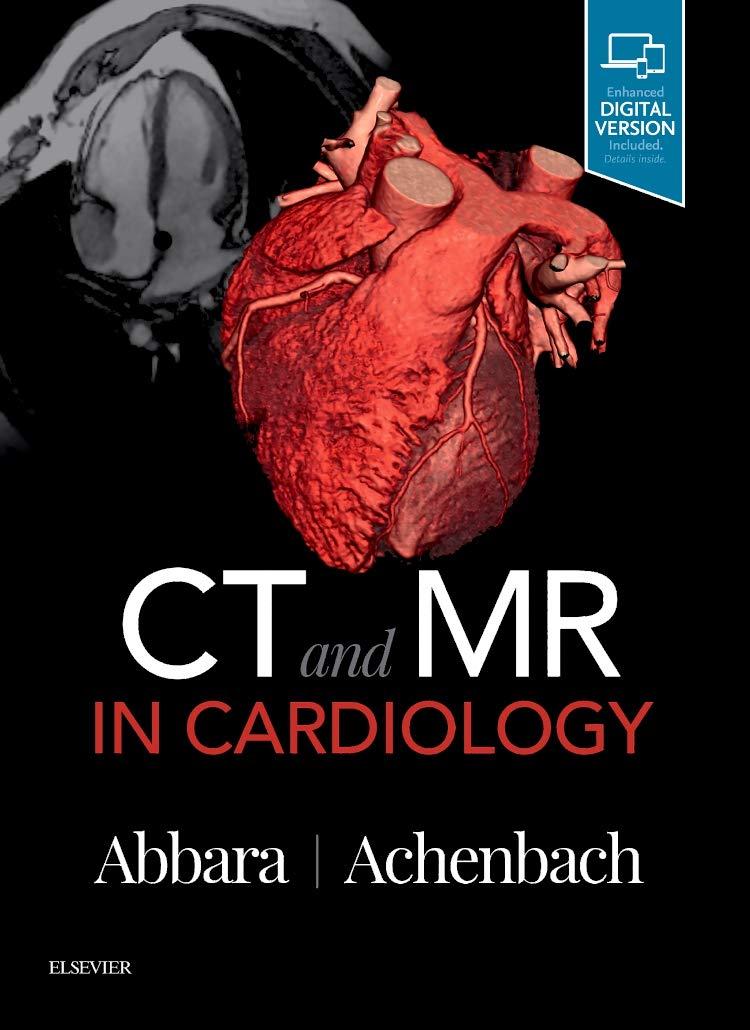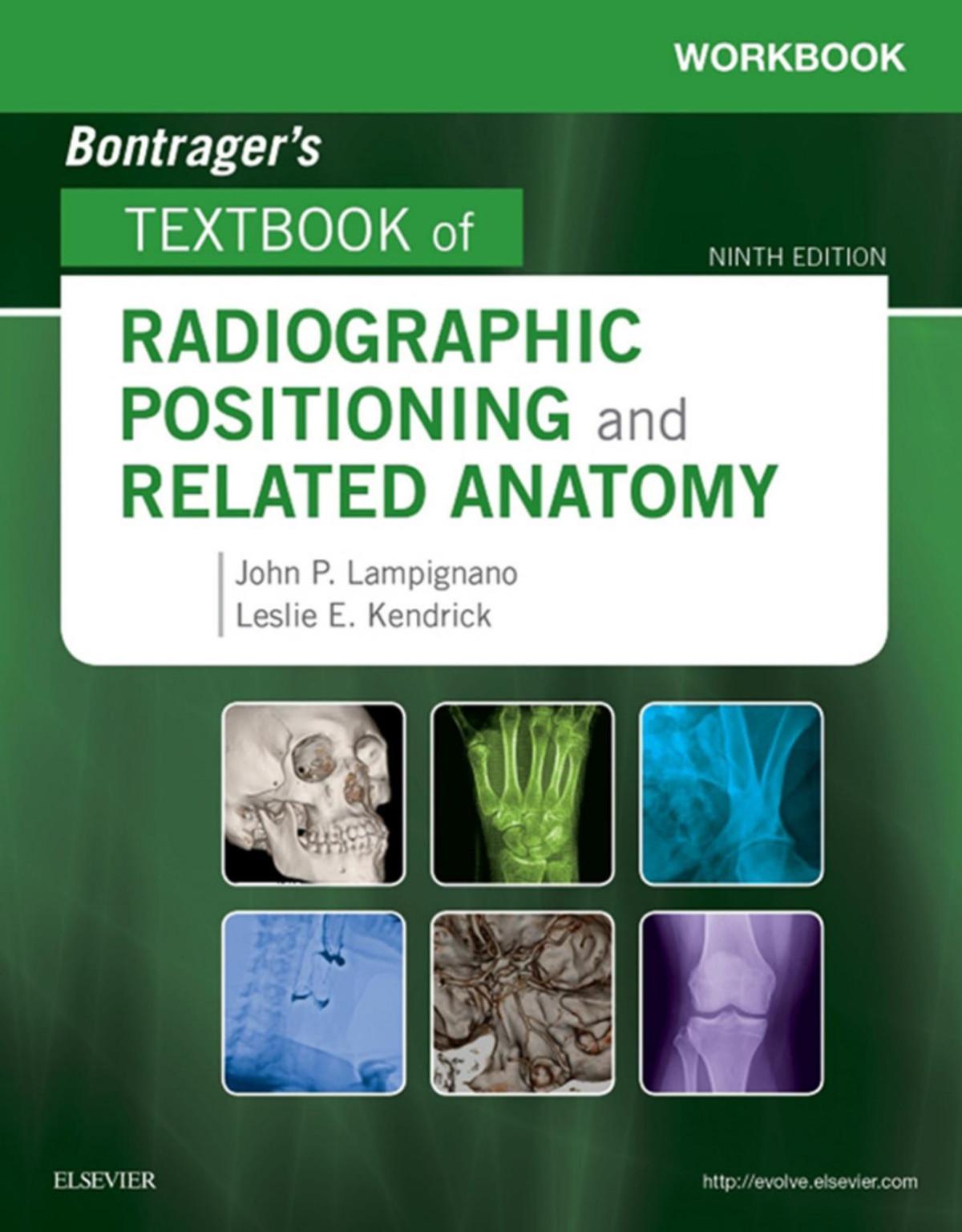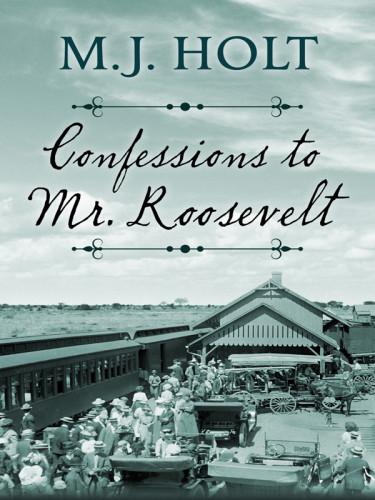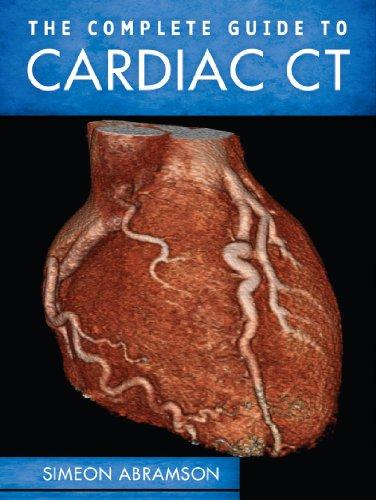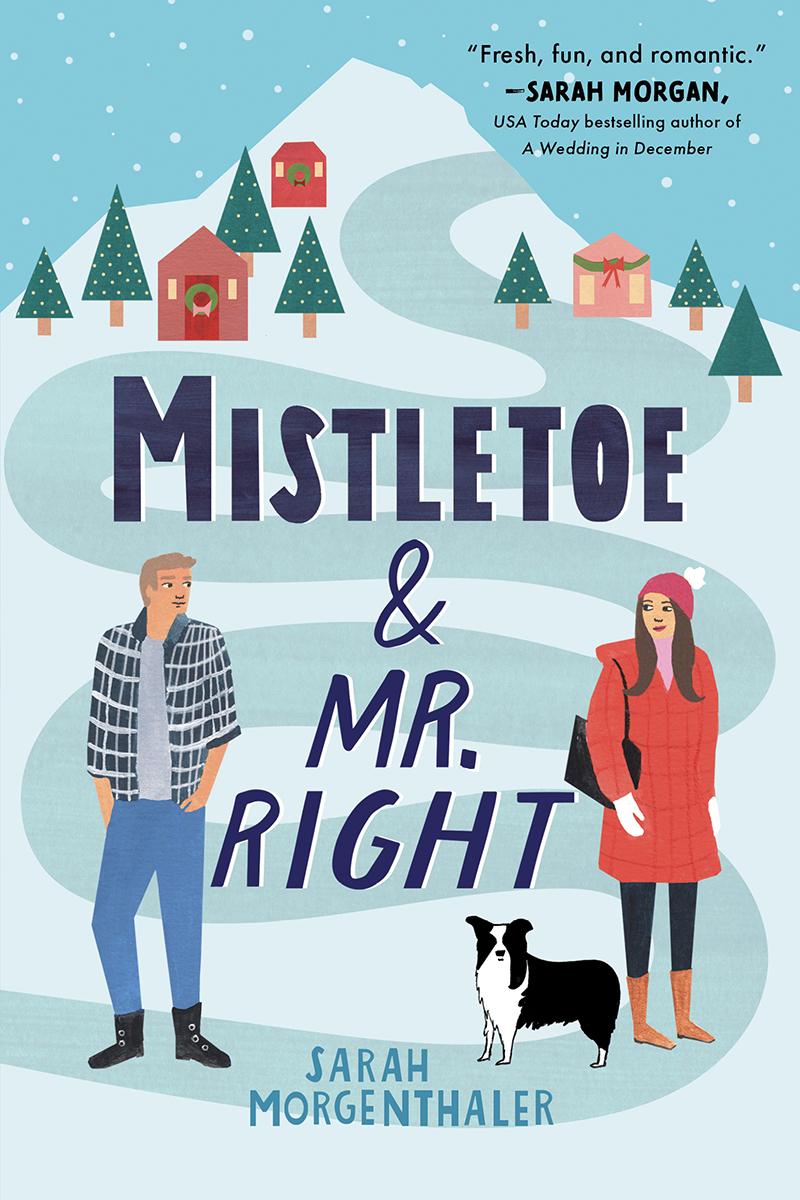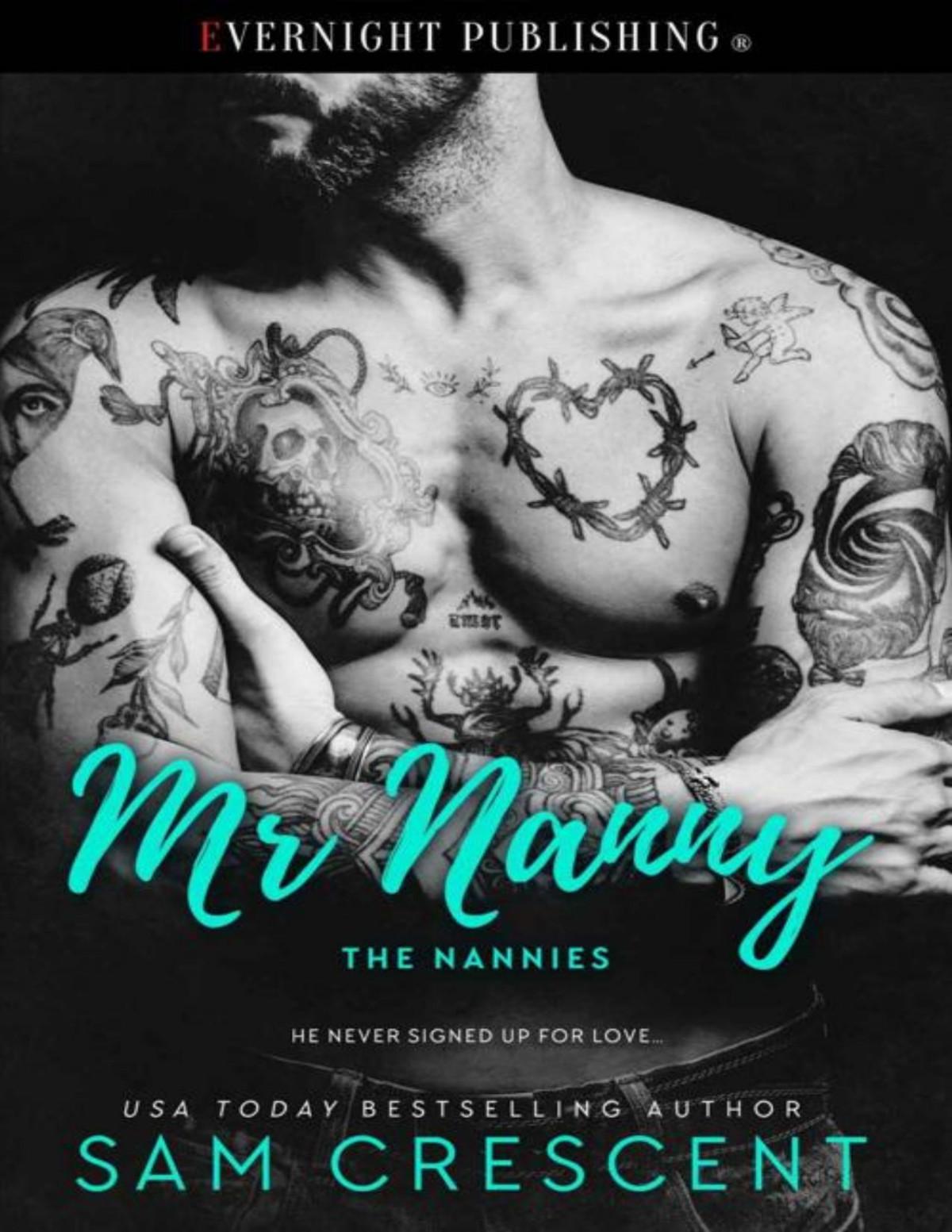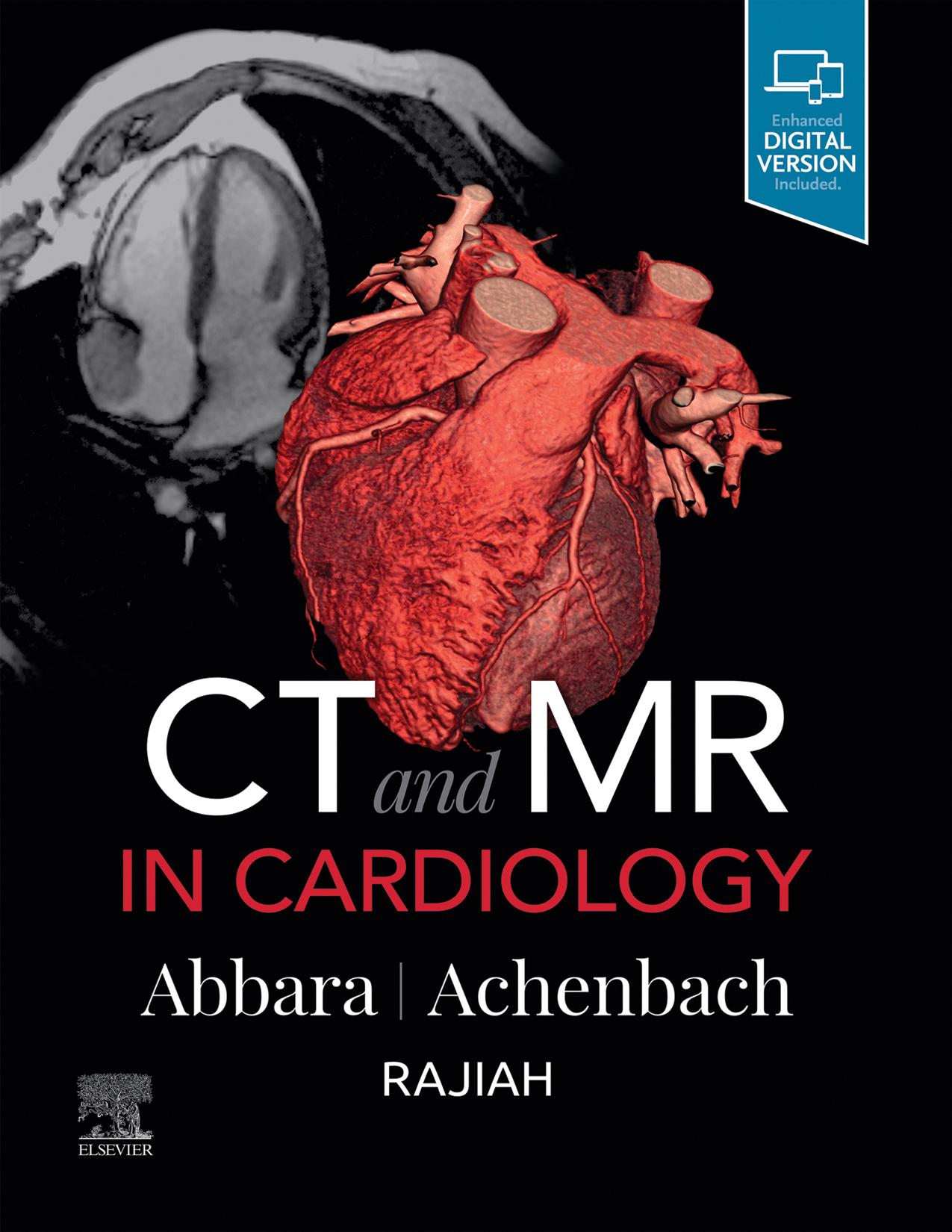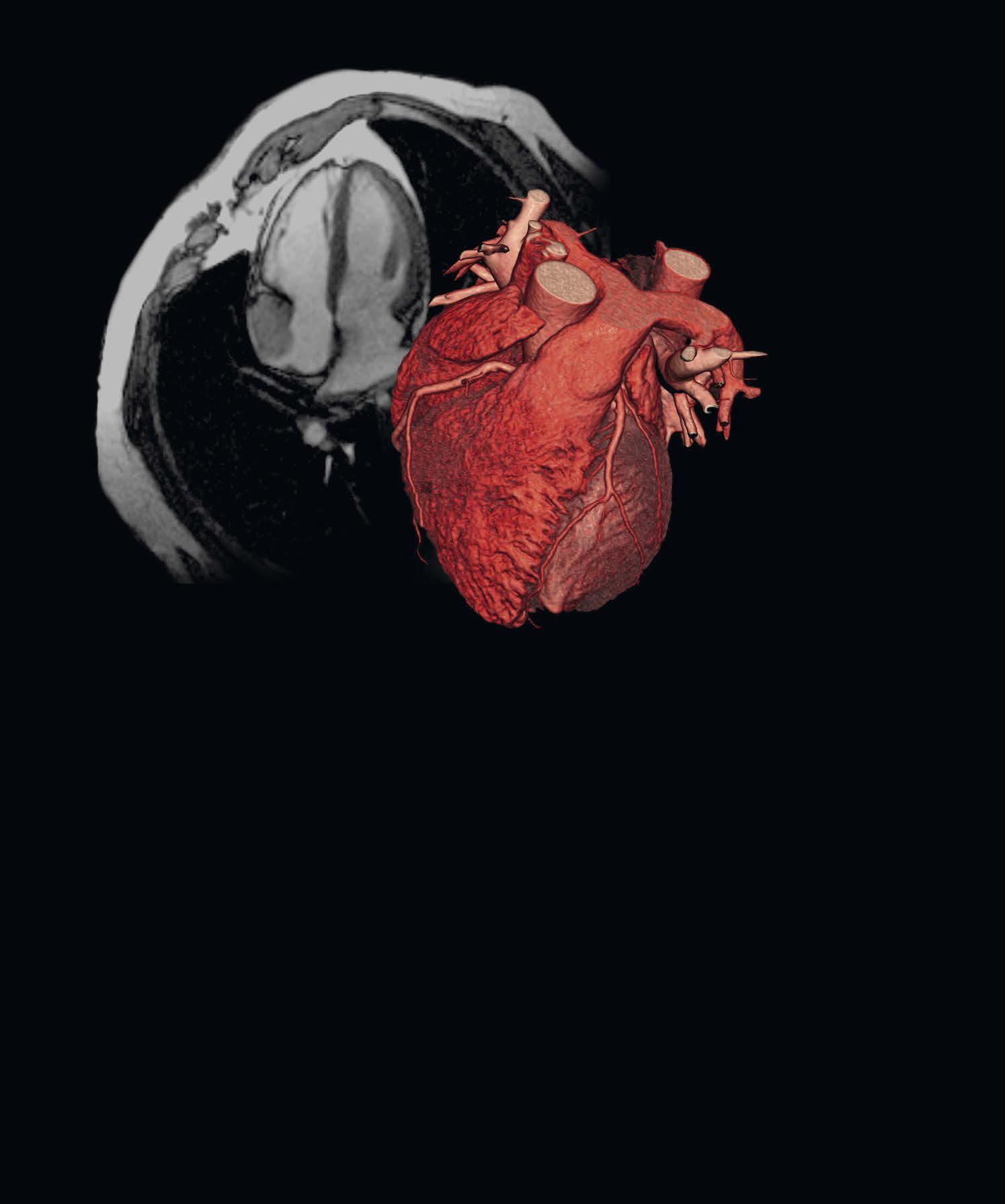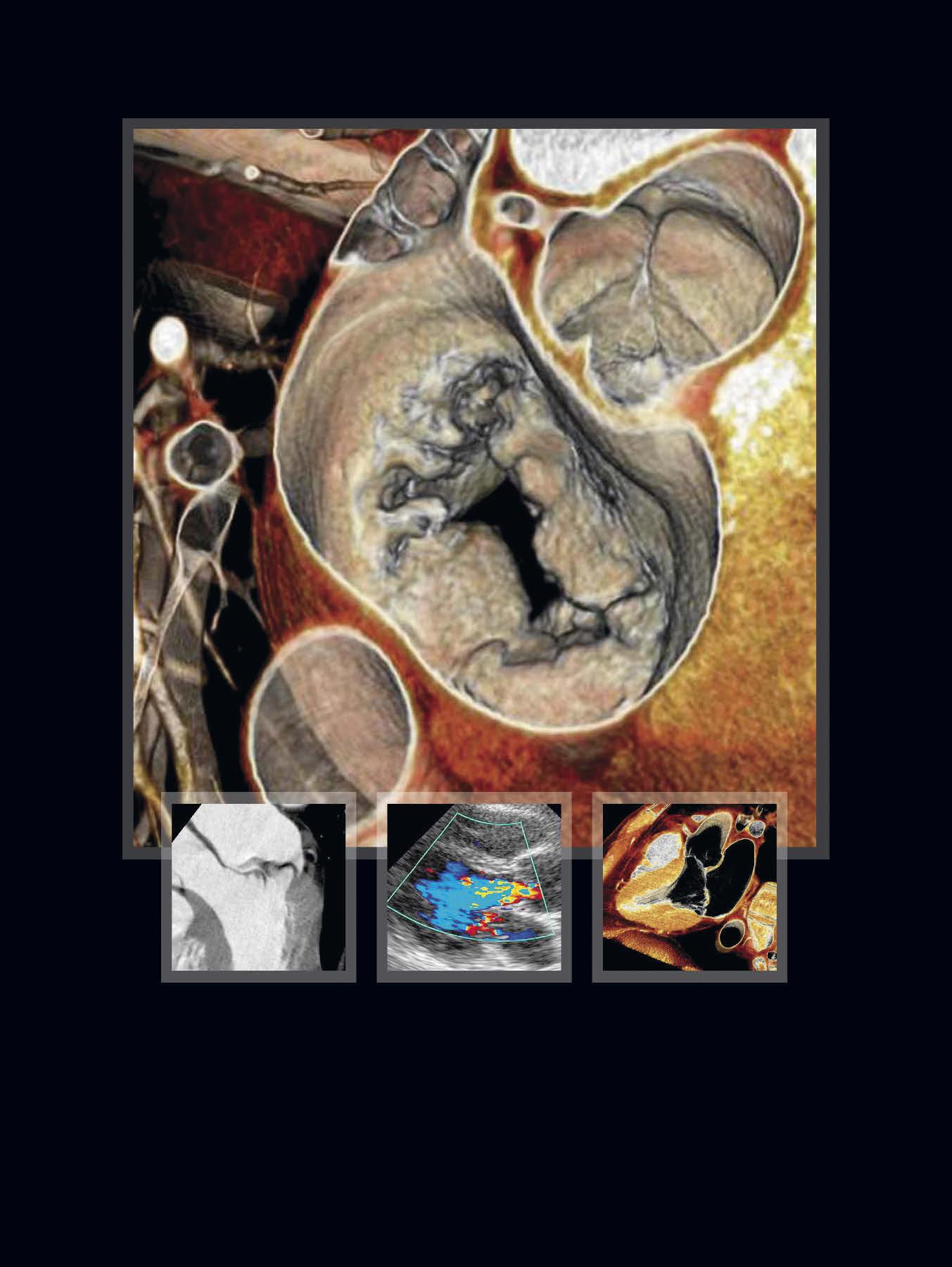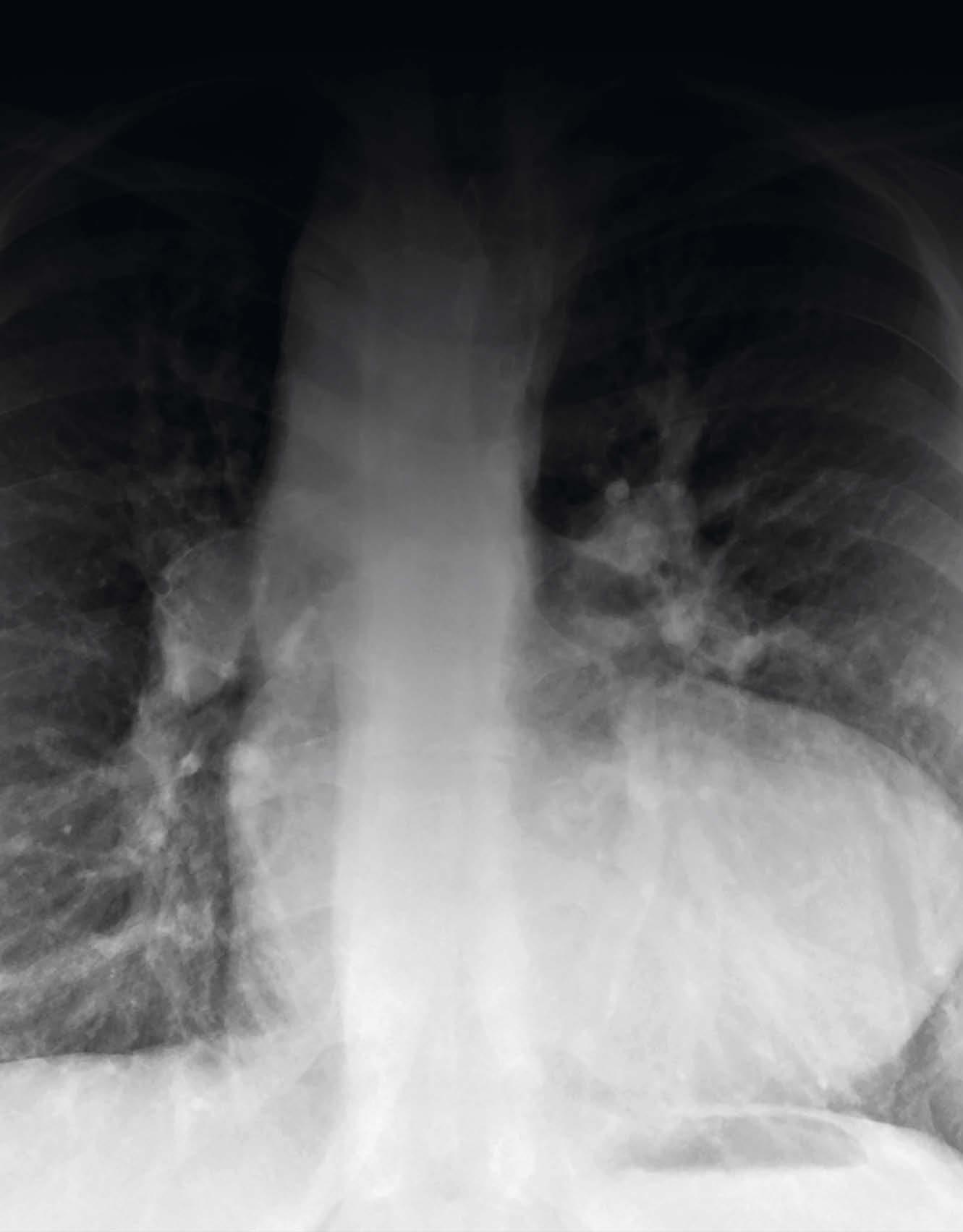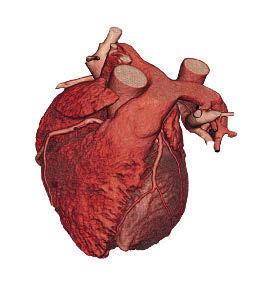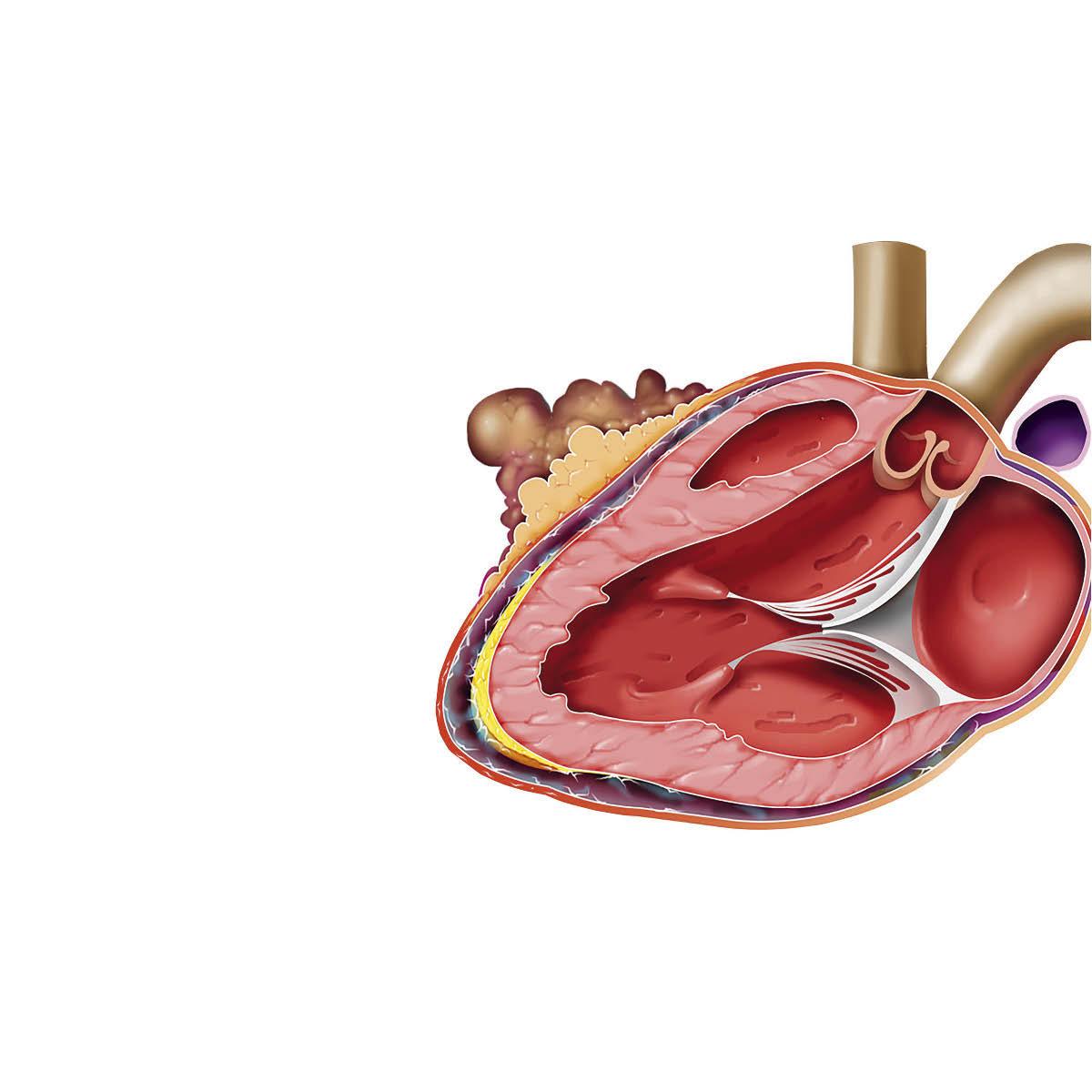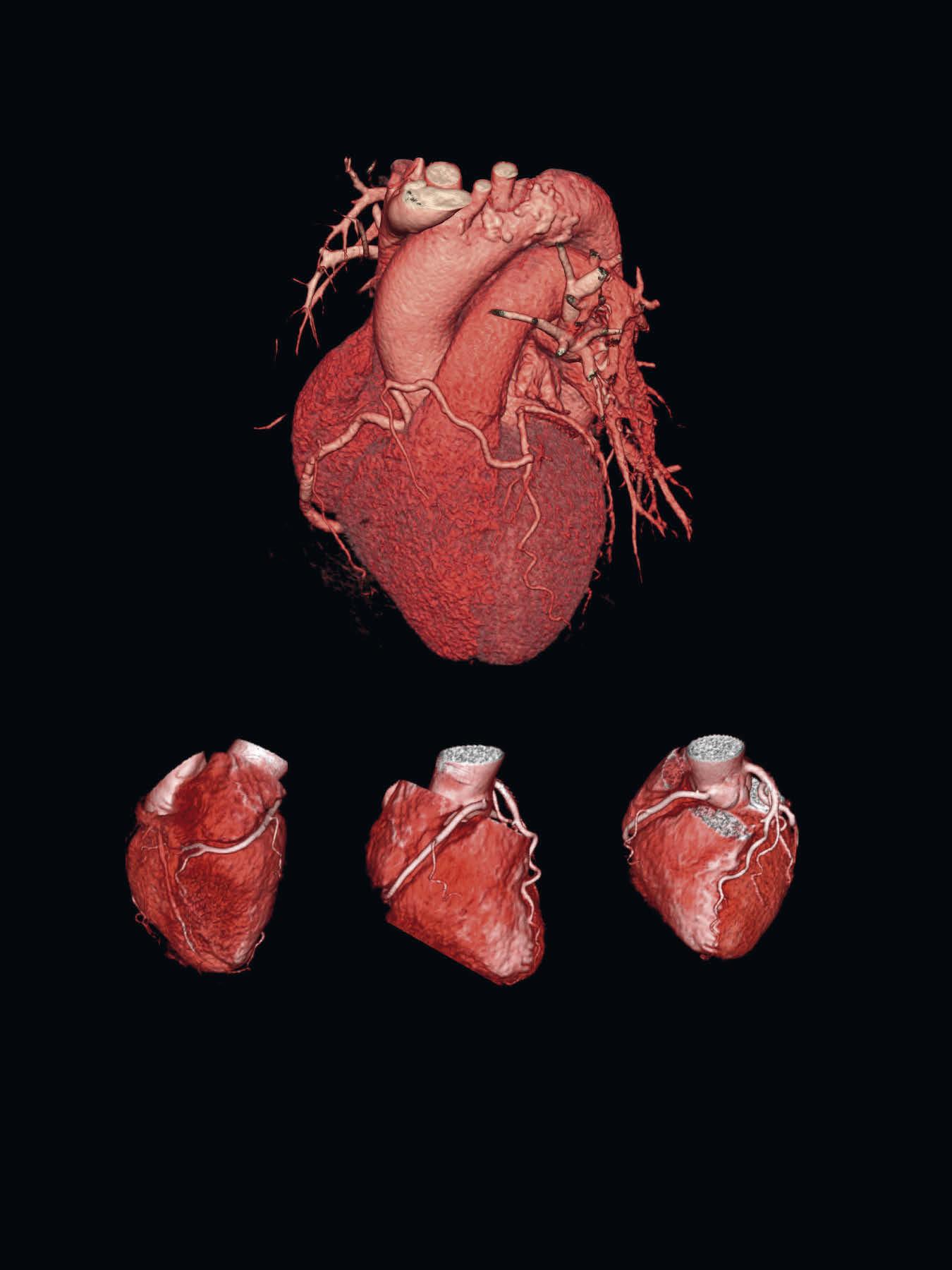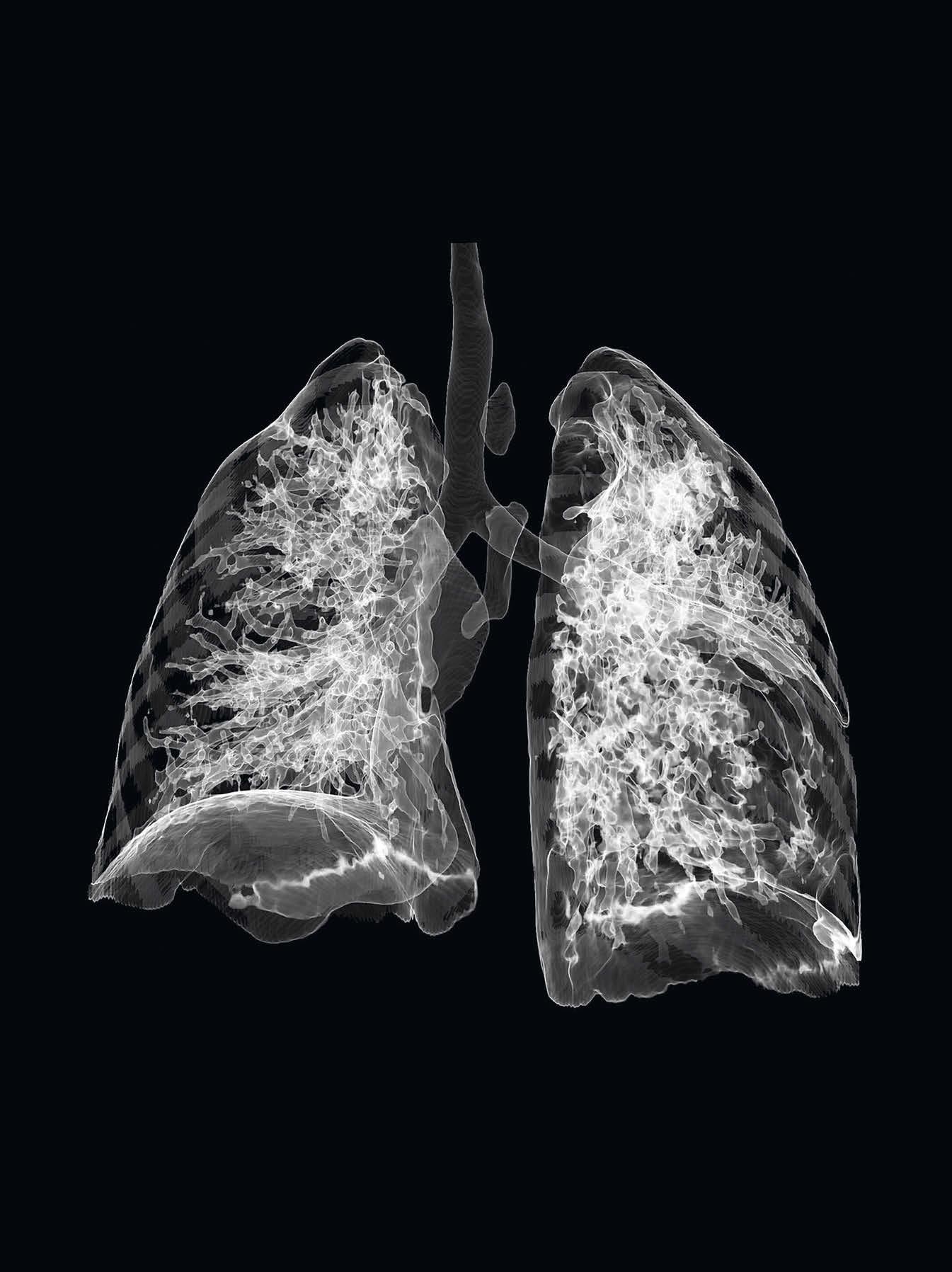Contributing Authors
Prachi P. Agarwal, MD Professor of Radiology
Interim Division Director of Cardiothoracic Radiology
University of Michigan Ann Arbor, Michigan
Malcolm Anastasius, MBBS, MM, PhD, FRACP
Cardiac Imaging Fellow
St. Paul’s Hospital
Vancouver Coastal Health University of British Columbia Vancouver, British Columbia, Canada
Efstathia Andrikopoulou, MD
Fellow, Noninvasive Cardiovascular Imaging
Division of Cardiovascular Disease
Brigham and Women's Hospital Boston, Massachusetts
Andrew Arai, MD
Chief, Advanced Cardiovascular Imaging Laboratory
National Institutes of Health National Heart, Lung, and Blood Institute Bethesda, Maryland
Sanjeev Bhalla, MD Professor of Radiology Section Chief Cardiothoracic Imaging Mallinckrodt Institute of Radiology
St. Louis, Missouri
Ron Blankstein, MD
Associate Professor of Medicine and Radiology
Harvard Medical School Associate Director
Cardiovascular Imaging Program
Brigham and Women’s Hospital Boston, Massachusetts
Darragh Brady, MD
Radiology Resident Department of Radiology Emory University Atlanta, Georgia
Arzu Canan, MD
Fellow, Cardiothoracic Imaging Department of Radiology
UT Southwestern Medical Center Dallas, Texas
Franklin Dana, MD
Assistant Professor Cardiothoracic Imaging Department of Radiology
VCU Health Systems Richmond, Virginia
Jonathan D. Dodd, MB, MSc, MRCPI, FFR(RCSI) Consultant Radiologist
St. Vincent's University Hospital Professor of Radiology
University College Dublin School of Medicine & Medical Science Dublin, Ireland
John Duignan, MB BCh, BAO, MRCPI
Radiology SpR
St. Vincent's University Hospital Dublin, Ireland
Ahmed El Mugharbil, MD
Cardiac Imaging Fellow
St. Paul’s Hospital Vancouver Coastal Health University of British Columbia Vancouver, British Columbia, Canada
Gudrun Feuchtner, MD Department of Radiology
The Medical University of Innsbruck Innsbruck, Austria
Sanjeev A. Francis, MD, FACC Director of Education
Cardiovascular Institute Director, Cardiovascular Medicine Fellowship Program
Maine Medical Center
MaineHealth Cardiology
Assistant Professor of Medicine
Tufts University School of Medicine Medford, Massachusetts
Sherief Garrana, MD
Radiology Resident
Saint Luke’s Hospital of Kansas City
University of Missouri-Kansas City Kansas City, Missouri
Leila Rezai Gharai, MD
Assistant Professor Department of Radiology
VCU Health System Richmond, Virginia
Harold Goerne, MD
Cardiovascular Radiologist
IMSS Western National Medical Center
CID Imaging and Diagnostic Center
Guadalajara, Jalisco, Mexico
John D. Grizzard, MD
Associate Professor
Deptartments of Radiology and Internal Medicine
VCU Health Systems Richmond, Virginia
Robert C. Groves, MD
Director
Radiology Residency Program
Assistant Professor of Radiology
Cardiothoracic Division
Department of Radiology
VCU Health Systems Richmond, Virginia
Mina F. Hanna, MD
Assistant Professor of Radiology
UT Health Science Center
McGovern Medical School Houston, Texas
Gerard M. Healy, MD
Specialist Registrar in Radiology
St. Vincent's University Hospital Dublin, Ireland
Sanjeeva P. Kalva, MD, FSIR, FCIRSE
Chief, Interventional Radiology
Massachusetts General Hospital
Harvard Medical School Boston, Massachusetts
Seth Kligerman, MD
Associate Professor
Division Chief of Cardiothoracic Radiology
Department of Radiology
University of California San Diego La Jolla, California
Eva Kusmirek, MD
Associate Professor
Department of Radiology
VCU Health Systems Richmond, Virginia
Luis Landeras, MD
Assistant Professor of Radiology
Associated Director of Cardiac CT and MRI
The University of Chicago Medicine Chicago, Illinois
Jonathon Leipsic, MD, FRCPC, FSCCT Professor of Radiology and Cardiology
University of British Columbia Canada Research Chair in Advanced Cardiac Imaging Vancouver, British Columbia, Canada
Jinglei Li, MD
Associate Senior Doctor Department of Radiology Guangdong General Hospital Guangdong Academy of Medical Sciences Guangzhou, China
John P. Lichtenberger, III, MD
Chief of Thoracic Radiology Department of Radiology
The George Washington University Hospital Washington, DC
Associate Professor of Radiology Department of Radiology and Radiological Sciences
Uniformed Services University of the Health Sciences Bethesda, Maryland
Santiago Martínez-Jiménez, MD Department of Radiology
Saint Luke's Hospital of Kansas City Professor of Radiology University of Missouri-Kansas City School of Medicine Kansas City, Missouri
David Murphy, MD
Consultant Cardiothoracic Radiologist Department of Radiology St. Vincent’s University Hospital Dublin, Ireland
Carlos A. Rojas, MD
Associate Professor Department of Radiology Mayo Clinic Jacksonville, Florida
Sachin Saboo, MD, FRCR
Associate Professor Department of Radiology UT Health Science Center San Antonio, Texas
Hriday Shah, MD
Assistant Professor Department of Radiology
UT Southwestern Medical Center Dallas, Texas
Arlene Sirajuddin, MD
Cardiothoracic Radiologist
National Institutes of Health
National Heart, Lung, and Blood Institute Bethesda, Maryland
Justin Stowell, MD
Clinical Fellow
Division of Thoracic Imaging and Intervention Department of Radiology
Massachusetts General Hospital
Harvard Medical School Boston, Massachusetts
Lynette Teo, MBChB(UK) FRCR(UK)
Senior Consultant
Department of Diagnostic Imaging
National University Hospital Singapore
Emily Tsai, MD
Clinical Assistant Professor Department of Radiology
Stanford School of Medicine Stanford, California
Christopher M. Walker, MD
Associate Professor of Radiology University of Kansas Medical Center Kansas City, Kansas
T. Gregory Walker, MD, FSIR
Interventional Radiology Integrated Residency Program Director Interventional Radiology Fellowship Program Director
Assistant Professor of Radiology
Harvard Medical School
Massachusetts General Hospital Division of Interventional Radiology Boston, Massachusetts
Carol C. Wu, MD
Associate Professor
Department of Diagnostic Radiology
The University of Texas MD Anderson Cancer Center Houston, Texas
Phillip Young, MD
Associate Professor of Radiology
Consultant and Chair Division of Body MRI
Mayo Clinic Rochester, Minnesota
Marcelo Godoy Zamorano, MD, MSc
Departamento de Radiología
Universidad de La Frontera Temuco, Chile
Stefan L. Zimmerman, MD
Associate Professor of Radiology and Radiological Sciences
Johns Hopkins University School of Medicine Baltimore, Maryland
Additional Contributing Authors
Gerald F. Abbott, MD, FACR
Brett W. Carter, MD
Jonathan Hero Chung, MD
Daniel W. Entrikin, MD
Cameron Hassani, MD
Terrance Healey, MD
Jeffrey P. Kanne, MD
Raymond J. Kim, MD
Naveen M. Kulkarni, MD
Michael T. Lu, MD
Kathryn M. Olsen, MD
Melissa L. Rosado-deChristenson, MD, FACR
Tyler H. Ternes, MD
Lowie M. R. Van Assche, MD
TABLEOFCONTENTS
SECTION1:INTRODUCTIONAND OVERVIEW 4
CardiacCT:AcquisitionandPostprocessing, IndicationsandInterpretation
StephanAchenbach,MD,FESC,FACC,FSCCT,Arzu Canan,MD,andSuhnyAbbara,MD,FACR,FSCCT
10
16
CardiacMR:AcquisitionandImagingProtocols
PrabhakarRajiah,MBBS,MD,FRCR,FSCMR,LowieM.R.
VanAssche,MD,andJohnD.Grizzard,MD
MultimodalityApproachtoCardiovascularDisorders
EfstathiaAndrikopoulou,MDandRonBlankstein,MD
20 CardiacAnatomy
SuhnyAbbara,MD,FACR,FSCCTandChristopherM. Walker,MD
SECTION2:CORONARYARTERYDISEASE
38 ApproachtoCoronaryHeartDisease
StephanAchenbach,MD,FESC,FACC,FSCCT
40 CoronaryAnatomy
SuhnyAbbara,MD,FACR,FSCCTandMichaelT.Lu,MD
52 MyocardialBridge
DarraghBrady,MD,GerardM.Healy,MD,andJonathan D.Dodd,MD,MSc,MRCPI,FFR(RCSI)
54 DuplicateLAD
PrabhakarRajiah,MBBS,MD,FRCR,FSCMRandPrachiP. Agarwal,MD
56 AnomalousCoronaryOriginFromOppositeSinus
SuhnyAbbara,MD,FACR,FSCCT,StephanAchenbach, MD,FESC,FACC,FSCCT,andArzuCanan,MD
62 CoronaryFistula
SuhnyAbbara,MD,FACR,FSCCTandChristopherM. Walker,MD
66 Bland-White-GarlandSyndrome
DarraghBrady,MD,DavidMurphy,MD,andJonathanD. Dodd,MD,MSc,MRCPI,FFR(RCSI)
68 CoronaryArteryAneurysm
JohnP.Lichtenberger,III,MD
70 KawasakiDisease
SethKligerman,MD
74 CoronaryArteryCalciumScoring
StephanAchenbach,MD,FESC,FACC,FSCCT
78 CoronaryAtheroscleroticPlaque
StephanAchenbach,MD,FESC,FACC,FSCCT
84 CoronaryThrombosis
88
StephanAchenbach,MD,FESC,FACC,FSCCT
CoronaryArteryStenosis
StephanAchenbach,MD,FESC,FACC,FSCCT
94 IschemiaImagingWithCT-FFR
JonathonLeipsic,MD,FRCPC,FSCCTandAhmedEl Mugharbil,MD
98 IschemiaImagingWithCTPerfusion
PrabhakarRajiah,MBBS,MD,FRCR,FSCMRandLuis Landeras,MD
100 IschemiaImagingWithMR
ArleneSirajuddin,MDandAndrewArai,MD
104 CoronaryEmbolism
SuhnyAbbara,MD,FACR,FSCCT
106 CoronaryArteryDissection
JonathanD.Dodd,MD,MSc,MRCPI,FFR(RCSI),Darragh Brady,MD,andGerardM.Healy,MD
110 AcuteMyocardialInfarction
StephanAchenbach,MD,FESC,FACC,FSCCT,Suhny Abbara,MD,FACR,FSCCT,andArzuCanan,MD
116 ChronicMyocardialInfarction
SuhnyAbbara,MD,FACR,FSCCTandMichaelT.Lu,MD
120 NonatherosclerosisMyocardialInfarction
DarraghBrady,MD,JohnDuignan,MBBCh,BAO,MRCPI, andJonathanD.Dodd,MD,MSc,MRCPI,FFR(RCSI)
124 PapillaryMuscleRupture
JonathanD.Dodd,MD,MSc,MRCPI,FFR(RCSI)and DarraghBrady,MD
128 PostinfarctionMitralRegurgitation
DarraghBrady,MD,GerardM.Healy,MD,andJonathan D.Dodd,MD,MSc,MRCPI,FFR(RCSI)
132 LeftVentricularFreeWallRupture
StephanAchenbach,MD,FESC,FACC,FSCCT
136 VentricularSeptalRupture
JohnP.Lichtenberger,III,MDandStephanAchenbach, MD,FESC,FACC,FSCCT
138 PostinfarctionLeftVentricularAneurysm
RobertC.Groves,MD,JohnD.Grizzard,MD,andLowieM. R.VanAssche,MD
142 PostinfarctionLeftVentricularPseudoaneurysm
StephanAchenbach,MD,FESC,FACC,FSCCTandSuhny
Abbara,MD,FACR,FSCCT
146 PostangioplastyRestenosis
DarraghBrady,MD,JohnDuignan,MBBCh,BAO,MRCPI, andJonathanD.Dodd,MD,MSc,MRCPI,FFR(RCSI)
148 In-StentRestenosis
StephanAchenbach,MD,FESC,FACC,FSCCT
152 Post-CABGThrombosis
DarraghBrady,MD,GerardM.Healy,MD,andJonathan D.Dodd,MD,MSc,MRCPI,FFR(RCSI)
156 Post-CABGAtherosclerosis
DarraghBrady,MD,GerardM.Healy,MD,andJonathan D.Dodd,MD,MSc,MRCPI,FFR(RCSI)
Another random document with no related content on Scribd:
But the strange procession made its way slowly under the trees, to the coarse sands, and descended again into the great light towards the lake. There was a little breeze under a blaze of sun. Folded sarapes on naked, soft shoulders swung unevenly, the images rocked and tottered a little. But onwards to the edge of the water went the tall crucifix, then the flashing glass box. And after, came Jesus in a red silk robe, fluttering, then a wooden Jesus all paint and streaks, then Jesus in white with a purple mantle that blew like a kerchief, Mary in lace that fluttered upon stiff white and blue satin. But the saints were only painted; painted wood.
The slim, lace-smocked priest staggered down the sand under the heavy crucifix, which had a white Christ Crucified stretched aloft, facing the lake. By the little wall was a large black canoa, sailing boat, with a broad plank gangway up to her stern. Two bare-legged, white-clad men walked by the slim priest, whose white sleeves blew like flags as he slowly climbed the gangway to the ship. Men helped him on board, and he walked away to the prow, where at length he stood the big crucifix, with the Christ still facing outwards.
The ship was open, without deck or hatches, but with fixed tables for the images. Slowly Ramón ascended and descended into the boat, the great glass case was laid down on its rest, the two men could wipe their wet brows and their hot, black hair. Ramón put on his blanket and his hat, against the sun. The boat heaved very slightly. The wind was from the west. The lake was pale and unreal, sun-blinded.
One after another the images rose over the stern of the boat, against the sky, then descended into the vessel, to be set down on their rests, where they rose above the black sides of the canoa, in view of the throng on the shore.
It was a strange and tawdry collection of images. And yet, each image had a certain pathos of its own, and a certain touch of horror, as they were grouped together for their last ride, upon the trestlesupports within the vessel. By each image stood the bearers, in hats and sarapes, keeping a steady hand on the poles.
There was a little line of soldiers on the shore, and three motorboats with soldiers waited by the big canoa. The shore was covered with a mass of people. Many row-boats came rowing inquisitively round, like fishes. But none came too near.
Bare-legged sailors began to pole the ship from the shore. They leaned heavily on the poles, and walked along the rims of the vessel. Slowly she began to move upon the waters, in the shallows. Slowly, she was leaving the shore, and the throng.
Two other sailors swiftly began to hoist the huge, square white sail. Quickly, yet heavily it rose in the air, and took the wind. It had the great sign of Quetzalcoatl, the circling blue snake and the blue eagle upon a yellow field, at the centre, like a great eye.
The wind came from the west, but the boat was steering south-east, for the little Island of the Scorpions, which rose like a small dim hummock from the haze of the lake. So the sail reached out, and the great eye seemed to be glancing back, at the village with the green willows and the empty white church, the throng on the shore.
Motor-boats circled the huge, slow canoe, small boats like insects followed and ranged round at a distance, never coming too close. The running water clucked and spoke, the men by the images steadied the poles with one hand, their hats with the other, the great eye on the sail ever looked back at the land, the sweep of the white canvas sweeping low above the glass case of death, the Christ caked with gore, the images in their fluttering mantles.
On the shore, the people wandered away, or sat on the sands waiting and watching in a sort of dumb patience that was half indifference. The canoe grew smaller, more inconspicuous, lapsing into the light, the little boats circled around it like mere dots. The lake tired the eyes with its light.
Away under the trees, in a half silence, a half vacancy, a woman bought a dark water-melon, smashed it open on a stone, and gave the big pinky fragments to her children. In silence, men sprinkled salt on the thick slice of cucumber sold by the woman under the
tree. In silence they wandered into the church, past the soldiers on guard at the door.
The church was absolutely dark, save for the light that entered the doorway, and absolutely bare; walls, floor, altar, transepts, all stark bare and empty. The people wandered away again, in silence.
It was noon, and a hot day. The canoa slowly ranged to the small hummock of the island amid the waters, where lived one family of Indians—fishers, with a few goats and one dry little place where they grew a few beans and heads of maize. For the rest, the island was all dry rock and thorny bushes, and scorpions.
The vessel was poled round to the one rocky bay. Slowly she drew near the island. The motor-boats and the little boats hurried ahead. Already brown, naked men were bathing among the rocks.
The great sail sank, the canoa edged up to the rocky shore, men sprang from her into the water, the images were lowered and slowly carried on to the rocks. There they waited for the bearers.
Slowly the procession went again up the bank of the dishevelled island, past the couple of huts, where a red cock was crowing among the litter, and over to rocks, beyond the bushes, on the far side.
The side facing Sayula was all rock, naked and painful to tread on. In a rocky hollow at the waters’ edge, tall stones had been put up on end, with iron bars across the top, like a grill. Underneath, a pile of faggots ready; and at the side, a pile of faggots.
The images, the glass box of the great Dead Christ, were laid on the iron bars of the grill, in a pathetic cluster all together. The crucifix was leaned against them. It was noon, the heat and the light were fierce and erect. But already down the lake clouds were pushing up fantastically.
Beyond the water, beyond the glare, the village looked like a mirage, with its trees and villages and white church towers.
Men who had come in boats crowded on the rocks of the little amphitheatre. In silence, Ramón kindled shreds of cane and ocote, with a burning glass. Little hasty flames like young snakes arose in the solid sunlight, with vapor of smoke. He set fire to the carefullyarranged pyramid of faggots beneath the grill-table of the images.
There was a crackling, and a puffing of whitish smoke, the sweet scent of ocote, and orange-red tongues of half-substantial flame were leaping up in the hot white air. Hot breaths blew suddenly, sudden flames gushed up, and the ocote, full of sweet resin, began to roar. The glass of the great box emitted strange, painful yelps as it splintered and fell tinkling. Between the iron bars, brownish flames pushed up among the images, which at once went black. The little vestments of silk and satin withered in a moment to blackness, the caked wounds of paint bubbled black.
The young priest took off his linen vestment, his stole and his chasuble, and with flushed face flung them in the flame. Then he stripped off his black cassock, and emerged in the white cotton of the men of Quetzalcoatl, his white drawers rolled up to the knee. He threw his cassock in the fire. Someone handed him a big hat, and a white sarape with blue ends.
There was a smell of burning paint, and wool, and ocote. The fire rushed in a dusky mass upon the blackened, flickering images, till nothing was to be seen but a confused bush of smoke and brownred flames, puthering, reeking, roaring. The flaming crucifix slipped aside, and fell. A man seized it and pushed it into the fire, under the images. Men in a sort of ecstasy threw on more of the heavy, resinous wood, that almost exploded into flame. Rocks cracked and exploded like guns. Everybody drew back from that roaring tree of flame, which rose ever higher and higher, its dark smoke and its sparks unfolding into heaven.
One of the supporting stones burst with a bang, bars of iron and blazing stumps of images tumbled in a confused roar. The glass case had disappeared, but ribbons of iron waved, then curled over red,
into the torrent of the sudden fire. Strange rods of iron appeared out of nowhere, protruding from solid red coals.
And soon, all that was left was a fierce glow of red coals of wood, with a medley of half-fused iron.
Ramón stood aside and watched in silence, his dark brow quite expressionless.
Then, when only the last bluish flames flickered out of a tumble of red fire, from the eminence above, rockets began to shoot into the air with a swish, exploding high in the sightless hot blue, with a glimmer of bluish showers, and of gold.
The people from the shore had seen the tree of smoke with its trunk of flame. Now they heard the heavy firing of the rockets, they looked again, exclaiming, half in dismay, half in the joyful lust of destruction:
“Señor! Señor! La Purisima! La Santísima!”
The flame and the smoke and the rockets melted as if by miracle, into nothingness, leaving the hot air unblemished. The coals of fire were shovelled and dropped down a steep hole.
As the canoa sailed back, the side of the lake, through filmy air, looked brownish and changeless. A cloud was rising in the southwest, from behind the dry, silent mountains, like a vast white tail, like the vast white fleecy tail of some squirrel, that had just dived out of sight behind the mountains. This wild white tail fleeced up and up, to the zenith, straight at the sun. And as the canoa spread her sail to tack back, already a delicate film of shadow was over the chalk-white lake.
Only on the low end of the isle of Scorpions, hot air still quivered.
Ramón returned in one of the motor-boats. Slowly the sky was clouding for the thunder and the rain. The canoa, unable to make her way across, was sailing for Tuliapan. The little boats hurried in silence.
They landed before the wind rose. Ramón went and locked the doors of the church.
The crowd scattered in the wind, rebozos waving wildly, leaves torn, dust racing. Sayula was empty of God, and, at heart, they were glad.
CHAP: XIX. THE ATTACK ON JAMILTEPEC.
Suddenly, nearly all the soldiers disappeared from the village, there was a “rebellion” in Colima. A train had been held up, people killed. And somebody, Generals Fulano and Tulano, had “pronounced” against the government.
Stir in the air, everybody enjoying those periodical shivers of fear! But for these shivers, everything much the same as usual. The church remained shut up, and dumb. The clock didn’t go. Time suddenly fell off, the days walked naked and timeless, in the old, uncounted manner of the past. The strange, old, uncounted, unregistered, unreckoning days of the ancient heathen world.
Kate felt a bit like a mermaid trying to swim in a wrong element. She was swept away in some silent tide, to the old, antediluvian silence, where things moved without contact. She moved and existed without contact. Even the striking of the hours had ceased. As a drowning person sees nothing but the waters, so Kate saw nothing but the face of the timeless waters.
So, of course, she clutched at her straw. She couldn’t bear it. She ordered an old, ricketty Ford car, to take her bumping out to Jamiltepec, over the ruinous roads in the afternoon.
The country had gone strange and void, as it does when these “rebellions” start. As if the life-spirit were sucked away, and only some empty, anti-life void, remained in the wicked hollow countryside. Though it was not far to Jamiltepec, once outside the village, the chauffeur and his little attendant lad began to get frightened, and to go frog-like with fear.
There is something truly mysterious about the Mexican quality of fear. As if man and woman collapsed and lay wriggling on the ground like broken reptiles, unable to rise. Kate used all her will, against this cringing nonsense.
They arrived without ado at Jamiltepec. The place seemed quiet, but normal. An oxen wagon stood empty in the courtyard. There were no soldiers on guard. They had all been withdrawn, against the rebellion. But several peons were moving round, in a desultory fashion. The day was a fiesta, when not much work was doing. In the houses of the peons, the women were patting tortillas, and preparing hot chile sauce, grinding away on the metates. A fiesta! Only the windmill that pumped up water from the lake was spinning quickly, with a little noise.
Kate drove into the yard in silence, and two mozos with guns and belts of cartridges came to talk in low tones to the chauffeur.
“Is Doña Carlota here?” asked Kate.
“No Señora. The patrona is not here.”
“Don Ramón?”
“Si Señora! Està.”
Even as she hesitated, rather nervous, Ramón came out of the inner doorway of the courtyard, in his dazzling white clothes.
“I came to see you,” said Kate. “I don’t know if you’d rather I hadn’t. But I can go back in the motor-car.”
“No,” he said. “I am glad. I was feeling deserted, I don’t know why. Let us go upstairs.”
“Patrón!” said the chauffeur, in a low voice. “Must I stay?”
Ramón said a few words to him. The chauffeur was uneasy, and didn’t want to stay. He said he had to be back in Sayula at such and such a time. Excuses, anyhow. But it was evident he wanted to get away.
“Then best let him go,” said Ramón to Kate. “You do not mind going home in the boat?”
“I don’t want to give you trouble.”
“It is least trouble to let this fellow go, and you can leave by boat just whenever you wish to. So we shall all be more free.”
Kate paid the chauffeur, and the Ford started rattling. After rattling a while, it moved in a curve round the courtyard, and lurched through the zaguan, disappearing as fast as possible.
Ramón spoke to his two mozos with the guns. They went to the outer doorway, obediently.
“Why do you have to have armed men?” she said.
“Oh, they’re afraid of bandits,” he said. “Whenever there’s a rebellion anywhere, everybody is afraid of bandits. So of course that calls bandits into life.”
“But where do they come from?” said Kate, as they passed into the inner doorways.
“From the villages,” he said, closing the heavy door of that entrance behind him, and putting the heavy iron bars across, from wall to wall.
The inner archway was now a little prison, for the strong iron gates at the lake end of the passage were shut fast. She looked through, at the little round pond. It had some blue water-lilies on it. Beyond, the pallid lake seemed almost like a ghost, in the glare of the sun.
A servant was sent to the kitchen quarters, Ramón and Kate climbed the stone stairs to the upper terrace. How lonely, stonily lonesome and forlorn the hacienda could feel! The very stone walls could give off emptiness, loneliness, negation.
“But which villages do the bandits come from?” she insisted.
“Any of them. Mostly, they say, from San Pablo or from Ahuajijic.”
“Quite near!” she cried.
“Or from Sayula,” he added. “Any of the ordinary men in big hats you see around the plaza, may possibly be bandits, when banditry pays, as a profession, and isn’t punished with any particular severity.”
“It is hard to believe!” she said.
“It is so obvious!” he said, dropping into one of the rocking-chairs opposite her, and smiling across the onyx table.
“I suppose it is!” she said.
He clapped his hands, and his mozo Martin came up. Ramón ordered something, in a low, subdued tone. The man replied in an even lower, more subdued tone. Then the master and man nodded at one another, and the man departed, his huaraches swishing a little on the terrace.
Ramón had fallen into the low, crushed sort of voice so common in the country, as if everyone were afraid to speak aloud, so they murmured guardedly. This was unusual, and Kate noticed it in him with displeasure. She sat looking past the thick mango-trees, whose fruit was changing colour like something gradually growing hot, to the ruffled, pale-brown lake. The mountains of the opposite shore were very dark. Above them lay a heavy, but distant black cloud, out of which lightning flapped suddenly and uneasily.
“Where is Don Cipriano?” she asked.
“Don Cipriano is very much General Viedma at the moment,” he replied. “Chasing rebels in the State of Colima.”
“Will they be very hard to chase?”
“Probably not. Anyhow Cipriano will enjoy chasing them. He is Zapotec, and most of his men are Zapotecans, from the hills. They love chasing men who aren’t.”
“I wondered why he wasn’t there on Sunday when you carried away the images,” she said. “I think it was an awfully brave thing to do.”
“Do you?” he laughed. “It wasn’t. It’s never half so brave, to carry something off, and destroy it, as to set a new pulse beating.”
“But you have to destroy those old things, first.”
“Those frowsty images—why, yes. But it’s no good until you’ve got something else moving, from the inside.”
“And have you?”
“I think I have. Don’t you?”
“Yes,” she said, a little doubtful.
“I think I have,” he said. “I feel there’s a new thing moving inside me.” He was laughing at her, for her hesitation. “Why don’t you come and join us?” he added.
“How?” she said. “By being married off to Don Cipriano?”
“Not necessarily. Not necessarily. Not necessarily by being married to anybody.”
“What are you going to do next?” she said.
“I? I am going to re-open the church, for Quetzalcoatl to come in. But I don’t like lonely gods. There should be several of them, I think, for them to be happy together.”
“Does one need gods?” she said.
“Why yes. One needs manifestations, it seems to me.”
Kate sat in unwilling silence.
“One needs goddesses too. That is also a dilemma,” he added, with a laugh.
“How I would hate,” said Kate, “to have to be a goddess for people.”
“For the monkeys?” he said, smiling.
“Yes! Of course.”
At that moment, he sat erect, listening. There had been a shot, which Kate had heard, but which she had hardly noticed; to her
ears, it might have been a motor-car back-firing, or even a motorboat.
Suddenly, a sharp little volley of shots.
Ramón rose swiftly, swift as a great cat, and slammed to the iron door at the top of the stairway, shooting the bars.
“Won’t you go into that room?” he said to her, pointing to a dark doorway. “You will be all right there. Just stay a few minutes till I come back.”
As he spoke, there came a shriek from the courtyard at the back, and a man’s death-voice yelled Patrón!
Ramón’s eyes dilated with terrible anger, the anger of death. His face went pale and strange, as he looked at her without seeing her, the black flame filling his eyes. He had drawn a long-barreled steel revolver from his hip.
Still without seeing her, he strode rapidly, soft and catlike along the terrace, and leaped up the end staircase on to the roof. The soft, eternal passion of anger in his limbs.
Kate stood in the doorway of the room, transfixed. The light of day seemed to have darkened before her face.
“Holá! You there!” she heard his voice from the roof, in such anger it was almost a laugh, from far away.
For answer, a confused noise from the courtyard, and several shots. The slow, steady answer of shots!
She started as a rushing hiss broke on the air. In terror she waited. Then she saw it was a rocket bursting with a sound like a gun, high over the lake, and emitting a shower of red balls of light. A signal from Ramón!
Unable to go into the dark room, Kate waited as if smitten to death. Then something stirred deep in her, she flew along the terrace and up the steps to the roof. She realised that she didn’t mind dying so long as she died with that man. Not alone.
The roof was glaring with sunshine. It was flat, but its different levels were uneven. She ran straight out into the light, towards the parapet wall, and had nearly come in sight of the gateway of the courtyard below, when something gave a slight smack, and bits of plaster flew in her face and her hair. She turned and fled back like a bee to the stairway.
The stairs came up in a corner, where there was a little sort of stone turret, square, with stone seats. She sank on one of these seats, looking down in terror at the turn of the stairs. It was a narrow little stone stairway, between the solid stone walls.
She was almost paralysed with shock and with fear. Yet something within her was calm. Leaning and looking out across calm sunshine of the level roof, she could not believe in death.
She saw the white figure and the dark head of Ramón within one of the small square turrets across the roof. The little tower was open, and hardly higher than his head. He was standing in a corner, looking sideways down a loop-hole, perfectly motionless. Snap! went his revolver, deliberately. There was a muffled cry below, and a sudden volley of shots.
Ramón stood away from the loop-hole and took off his white blouse, so that it should not betray him. Above his sash was a belt of cartridges. In the shadow of the turret, his body looked curiously dark, rising from the white of his trousers. Again he took his stand quietly at the side of the long, narrow, slanting aperture. He lifted his revolver carefully, and the shots, one, two, three, slow and deliberate, startled her nerves. And again there was a volley of shots from below, and bits of stone and plaster smoking against the sky. Then again, silence, long silence. Kate pressed her hands against her body, as she sat.
The clouds had shifted, the sun shone yellowish. In the heavier light, the mountains beyond the parapet showed a fleece of young green, smoky and beautiful.
All was silent. Ramón in the shadow did not move, pressing himself against the wall, and looking down. He commanded, she knew, the big inner doors.
Suddenly, however, he shifted. With his revolver in his hand he stooped and ran, like some terrible cat, the sun gleaming on his naked back as he crouched under the shelter of the thick parapet wall, running along the roof to the corresponding front turret.
This turret was roofless, and it was nearer to Kate, as she sat spellbound, in a sort of eternity, on the stone seat at the head of the stairs, watching Ramón. He pressed himself against the wall, and lifted his revolver to the slit. And again, one, two, three, four, five, the shots exploded deliberately. Some voice below yelled Ay-ee!Ayee! Ay-ee! in yelps of animal pain. A voice was heard shouting command. Ramón kneeled on one knee, re-loading his revolver. Then he struck a match, and again Kate almost started out of her skin, as a rocket rushed ferociously up into the sky, exploded like a gun, and let fall the balls of red flame that lingered as if loth to die away, in the high, remote air.
She sighed, wondering what it all was. It was death, she knew. But so strange, so vacant. Just these noises of shots! And she could see nothing outside. She wanted to see what was in the courtyard.
Ramón was at his post, pressing himself close to the wall, looking down, with bent head, motionless. There were shots, and a spatter of lead from below. But he did not move. She could not see his face, only part of his back; the proud, heavy, creamy-brown shoulders, the black head bent a little forward, in concentration, the cartridgebelt dropping above his loins, over the white, floppy linen of the trousers. Still and soft in watchful concentration, almost like silence itself. Then with soft, diabolic swiftness in his movements, he changed his position, and took aim.
He was utterly unaware of her; even of her existence. Which was as it should be, no doubt. She sat motionless, waiting. Waiting, waiting, waiting, in that yellowish sunlight of eternity, with a certain
changeless suspense of stillness inside her. Someone would come from the village. There would be an end. There would be an end.
At the same time, she started every time he fired, and looked at him. And she heard his voice saying: “One needs manifestations, it seems to me.” Ah, how she hated the noise of shots. Suddenly she gave a piercing shriek, and in one leap was out of her retreat. She had seen a black head turning the stairs.
Before she knew it, Ramón jumped past her like a great cat, and two men clashed in mid-air, as the unseen fellow leaped up from the stairs. Two men in a crash went down on the floor, a revolver went off, terrible limbs were writhing.
Ramón’s revolver was on the floor. But again there was a shot from the tangled men, and a redness of blood suddenly appearing out of nowhere, on the white cotton clothing, as the two men twisted and fought on the floor.
They were both big men. Struggling on the ground, they looked huge. Ramón had the bandit’s revolver-hand by the wrist. The bandit, with a ghastly black face with rolling eyes and sparse moustache, had got Ramón’s naked arm in his white teeth, and was hanging on, showing his red gums, while with his free hand he was feeling for his knife.
Kate could not believe that the black, ghastly face with the sightless eyes and biting mouth was conscious. Ramón had him clasped round the body. The bandit’s revolver fell, and the fellow’s loose black hand scrabbled on the concrete, feeling for it. Blood was flowing over his teeth. Yet some blind super-consciousness seemed to possess him, as if he were a devil, not a man.
His hand nearly touched Ramón’s revolver. In horror Kate ran and snatched the weapon from the warm concrete, running away as the bandit gave a heave, a great sudden heave of his body, under the body of Ramón. Kate raised the revolver. She hated that horrible devil under Ramón as she had never hated in her life. Yet she dared not fire.
Ramón shouted something, glancing at her. She could not understand. But she ran round, to be able to shoot the man under Ramón. Even as she ran, the bandit twisted with a great lunge of his body, heaved Ramón up, and with his short free hand got Ramón’s own knife from the belt at the groin, and stabbed.
Kate gave a cry! Oh, how she wanted to shoot! She saw the knife strike sideways, slanting in a short jab into Ramón’s back. At the same moment there was a stumble on the stairs, and another blackheaded man was leaping on to the roof from the turret.
She stiffened her wrist and fired without looking, in a sudden second of pure control. The black head came crashing at her. She recoiled in horror, lifted the revolver and fired again, and missed. But even as it passed her, she saw red blood among the black hairs of that head. It crashed down, the buttocks of the body heaving up, the whole thing twitching and jerking along, the face seeming to grin in a mortal grin.
Glancing from horror to horror, she saw Ramón, his face still as death, blood running down his arm and his back, holding down the head of the bandit by the hair and stabbing him with short stabs in the throat, one, two, while blood shot out like a red projectile; there was a strange sound like a soda-syphon, a ghastly bubbling, one final terrible convulsion from the loins of the stricken man, throwing Ramón off, and Ramón lay twisted, still clutching the man’s hair in one hand, the bloody knife in the other, and gazing into the livid, distorted face, in which ferocity seemed to have gone frozen, with a steady, intent, inhuman gaze.
Then, without letting go his victim’s hair, he looked up, cautiously. To see Kate’s man, with black hair wet with blood, and blood running down into his glazed, awful eyes, slowly rising to his knees. It was the strangest face in the world; the high, domed head with bloodsoddened hair, blood running in several streams down the narrow, corrugated brow and along the black eyebrows above the glazed, black, numb eyes, in which the last glazing was of ferocity, stranger
even than wonder, the glazed and absolute ferocity which the man’s last consciousness showed.
It was a long, thin, handsome face, save for those eyes of glazed ferocity, and for the longish white teeth under the sparse moustache.
The man was reduced to his last, blank term of being; a glazed and ghastly ferocity.
Ramón dropped the hair of his victim, whose head dropped sideways with a gaping red throat, and rose to a crouching position. The second bandit was on his knees, but his hand already clasped his knife. Ramón crouched. They were both perfectly still. But Ramón had got his balance, crouching between his feet.
The bandit’s black, glazed eyes of blank ferocity took a glint of cunning. He was stretching. He was going to leap to his feet for his stroke.
And even as he leaped, Ramón shot the knife, that was all bright red as a cardinal bird. It flew red like a bird, and the drops of Ramón’s handful of blood flew with it, splashing even Kate, who kept her revolver ready, watching near the stairway.
The bandit dropped on his knees again, and remained for a moment kneeling as if in prayer, the red pommel of the knife sticking out of his abdomen, from his white trousers. Then he slowly bowed over, doubled up, and went on his face again, once more with his buttocks in the air.
Ramón still crouched at attention, almost supernatural, his dark eyes glittering with watchfulness, in pure, savage attentiveness. Then he rose, very smooth and quiet, crossed the blood-stained concrete to the fallen man, picked up the clean, fallen knife that belonged to the fellow, lifted the red-dripping chin, and with one stroke drove the knife into the man’s throat. The man subsided with the blow, not even twitching.
Then again, Ramón turned to look at the first man. He gazed a moment attentively. But that horrible black face was dead.
And then Ramón glanced at Kate, as she stood near the stairs with the revolver. His brow was like a boy’s, very pure and primitive, and the eyes underneath had a certain primitive gleaming look of virginity. As men must have been, in the first awful days, with that strange beauty that goes with pristine rudimentariness.
For the most part, he did not recognise her. But there was one remote glint of recognition.
“Are they both dead?” she asked, awestruck.
“Creoquesi!” he replied in Spanish.
He turned to look once more, and to pick up the pistol that lay on the concrete. As he did so, he noticed that his right hand was bright red, with the blood that flowed still down his arm. He wiped it on the jacket of the dead man. But his trousers on his loins were also sodden with blood, they stuck red to his hips. He did not notice.
He was like a pristine being, remote in consciousness, and with far, remote sex.
Curious rattling, bubbling noises still came from the second man, just physical sounds. The first man lay sprawling in a ghastly fashion, his evil face fixed above a pool of blackening blood.
“Watch the stairs!” said Ramón in Spanish to her, glancing at her with farouche eyes, from some far remote jungle. Yet still the glint of recognition sparked furtively out of the darkness.
He crept to the turret, and stealthily looked out. Then he crept back, with the same stealth, and dragged the nearest dead man to the parapet, raising the body till the head looked over. There was no sound. Then he raised himself, and peeped over. No sign, no sound.
He looked at the dead body as he let it drop. Then he went to Kate, to look down the stairs.
“You grazed that man with your first shot, you only stunned him I believe,” he said.
“Are there any more?” she asked, shuddering.
“I think they are all gone.”
He was pale, almost white, with that same pristine clear brow, like a boy’s, a sort of twilight changelessness.
“Are you much hurt?” she said.
“I? No!” and he put his fingers round to his back, to feel the slowly welling wound, with his bloody fingers.
The afternoon was passing towards yellow, heavy evening.
He went again to look at the terrible face of the first dead man.
“Did you know him?” she said.
He shook his head.
“Not that I am aware,” he said. Then; “Good that he is dead. Good that he is dead.—Good that we killed them both.”
He looked at her with that glint of savage recognition from afar.
“Ugh! No! It’s terrible!” she said shuddering.
“Good for me that you were there! Good that we killed them between us! Good they are dead.”
The heavy, luxurious yellow light from below the clouds gilded the mountains of evening. There was the sound of a motor-car honking its horn.
Ramón went in silence to the parapet, the blood wetting his pantaloons lower and lower, since they stuck to him when he bent down. Rich yellow light flooded the blood-stained roof. There was a terrible smell of blood.
“There is a car coming,” he said.
She followed, frightened, across the roof.
She saw the hills and lower slopes inland swimming in gold light like lacquer. The black huts of the peons, the lurid leaves of bananas showed up uncannily, the trees green-gold stood up, with boughs of shadow. And away up the road was a puther of dust, then the flash of glass as the automobile turned.
“Stay here,” said Ramón, “while I go down.”
“Why didn’t your peons come and help you?” she said.
“They never do!” he replied. “Unless they are armed on purpose.”
He went, picking up his blouse and putting it on. And immediately the blood came through.
He went down. She listened to his steps. Below, the courtyard was all shadow, and empty, save for two dead white-clothed bodies of men, one near the zaguan, one against a pillar of the shed.
The motor-car came sounding its horn wildly all the way between the trees. It lurched into the zaguan. It was full of soldiers, soldiers standing on the running-boards, hanging on.
“Don Ramón! Don Ramón!” shouted the officer, leaping out of the car. “Don Ramón!” He was thundering at the doors of the inner zaguan.
Why did not Ramón open? Where was he?
She leaned over the parapet and screamed like a wild bird:
“Viene! Viene Don Ramón! El viene!”
The soldiers all looked up at her. She drew back in terror. Then, in a panic, she turned downstairs, to the terrace. There was blood on the stone stairs, at the bottom, a great pool. And on the terrace near the rocking-chairs, two dead men in a great pool of blood.
One was Ramón! For a moment she went unconscious. Then slowly she crept forward. Ramón had fallen, reeking with blood from his wound, his arms round the body of the other man, who was
bleeding too. The second man opened his eyes, wildly, and in a rattling voice, blind and dying, said: “Patrón!”
It was Martin, Ramón’s own mozo. He was stiffening and dying in Ramón’s arms. And Ramón, lifting him, had made his own wound gush with blood, and had fainted. He lay like dead. But Kate could see the faintest pulse in his neck.
She ran blindly down the stairs, and fought to get the great iron bars from across the door, screaming all the time:
“Come! Somebody! Come to Don Ramón! He will die.”
A terrified boy and a woman appeared from the kitchen quarters. The door was opened, just as six horse-soldiers galloped into the courtyard. The officer leaped from his horse and ran like a hare, his revolver drawn, his spurs flashing, straight through the doors and up the stairs, like a madman. When Kate got up the stairs again, the officer was standing with drawn revolver, gazing down at Ramón.
“He is dead?” he said, stupefied, looking at Kate.
“No!” she said. “It is only loss of blood.”
The officers lifted Ramón and laid him on the terrace. Then quickly they got off his blouse. The wound was bleeding thickly in the back.
“We’ve got to stop this wound,” said the lieutenant. “Where is Pablo?”
Instantly there was a cry for Pablo.
Kate ran into a bedroom for water, and she switched an old linen sheet from the bed. Pablo was a young doctor among the soldiers. Kate gave him the bowl of water, and the towel, and was tearing the sheet into bands. Ramón lay naked on the floor, all streaked with blood. And the light was going.
“Bring light!” said the young doctor.
With swift hands he washed the wound, peering with his nose almost touching it.
“It is not much!” he said.
Kate had prepared bandages and a pad. She crouched to hand them to the young man. The woman-servant set a lamp with a white shade on the floor by the doctor. He lifted it, peering again at the wound.
“No!” he said. “It is not much.”
Then glancing up at the soldiers who stood motionless, peering down, the light on their dark faces.
“Té!” he said, making a gesture.
Quickly the lieutenant took the lamp, holding it over the inert body, and the doctor, with Kate to help, proceeded to staunch and bind the wound. And Kate, as she touched the soft, inert flesh of Ramón, was thinking to herself: This too is he, this silent body! And that face that stabbed the throat of the bandit was he! And that twilit brow, and those remote eyes, like a death-virgin, was he. Even a savage out of the twilight! And the man that knows me, where is he? One among these many men, no more! Oh God! give the man his soul back, into this bloody body. Let the soul come back, or the universe will be cold for me and for many men.
The doctor finished his temporary bandage, looked at the wound in the arm, swiftly wiped the blood off the loins and buttocks and legs, and said:
“We must put him in bed. Lift his head.”
Quickly Kate lifted the heavy, inert head. The eyes were half open. The doctor pressed the closed lips, under the sparse black moustache. But the teeth were firmly shut.
The doctor shook his head.
“Bring a mattress,” he said.
The wind was suddenly roaring, the lamp was leaping with a long, smoky needle of flame, inside its chimney. Leaves and dust flew rattling on the terrace, there was a splash of lightning. Ramón’s body lay there uncovered and motionless, the bandage was already soaked with blood, under the darkening, leaping light of the lamp.
And again Kate saw, vividly, how the body is the flame of the soul, leaping and sinking upon the invisible wick of the soul. And now the soul, like a wick, seemed spent, the body was a sinking, fading flame.
“Kindle his soul again, oh God!” she cried to herself.
All she could see of the naked body was the terrible absence of the living soul of it. All she wanted was for the soul to come back, the eyes to open.
They got him upon the bed and covered him, closing the doors against the wind and the rain. The doctor chafed his brow and hands with cognac. And at length the eyes opened; the soul was there, but standing far back.
For some moments Ramón lay with open eyes, without seeing or moving. Then he stirred a little.
“What’s the matter?” he said.
“Keep still, Don Ramón,” said the doctor, who with his slim dark hands was even more delicate than a woman. “You have lost much blood. Keep still.”
“Where is Martin?”
“He is outside.”
“How is he?”
“He is dead.”
The dark eyes under the black lashes were perfectly steady and changeless. Then came the voice:
“Pity we did not kill them all. Pity we did not kill them all. We have got to kill them all.—Where is the Señora Inglesa?”
“Here she is.”
His black eyes looked up at Kate. Then more of his consciousness came back.
“Thank you for my life,” he said, closing his eyes. Then: “Put the lamp aside.”
Soldiers were tapping at the glass pane, for the lieutenant. A black little fellow entered, wiping the rain from his black face and pushing his thick black hair back.
“There are two more dead on the azotea,” he announced to his officer.
The lieutenant rose, and followed him out. Kate too went on to the terrace. In the early darkness the rain was threshing down. A lantern was coming down from the roof: it came along the terrace to the stairs, and after it two soldiers in the pouring rain, carrying a dead body, then behind, two more, with the other body. The huaraches of the soldiers clicked and shuffled on the wet terrace. The dismal cortège went downstairs.
Kate stood on the terrace facing the darkness, while the rain threshed down. She felt uneasy here, in this house of men and of soldiers. She found her way down to the kitchen, where the boy was fanning a charcoal fire, and the woman was crushing tomatoes on the metate, for a sauce.
“Ay, Señora!” cried the woman. “Five men dead, and the Patrón wounded to death! Ay! Ay!”
“Seven men dead!” said the boy. “Two on the azotea!”
“Seven men! Seven men!”
Kate sat on her chair, stunned, unable to hear anything but the threshing rain, unable to feel anything more. Two or three peons came in, and two more women, the men wrapped to their noses in
their blankets. The women brought masa, and began a great clapping of tortillas. The people conversed in low, rapid tones, in the dialect, and Kate could not listen.
At length the rain began to abate. She knew it would leave off suddenly. There was a great sound of water running, gushing, splashing, pouring into the cistern. And she thought to herself: The rain will wash the blood off the roof and down the spouts into the cistern. There will be blood in the water.
She looked at her own blood-smeared white frock. She felt chilly. She rose to go upstairs again, into the dark, empty, masterless house.
“Ah, Señora! You are going upstairs? Go, Daniel, carry the lantern for the Señora!”
The boy lit a candle in a lantern, and Kate returned to the upper terrace. The light shone out of the room where Ramón was. She went into the salon and got her hat and her brown shawl. The lieutenant heard her, and came to her quickly, very kindly and respectful.
“Won’t you come in, Señora?” he said, holding the door to the room where Ramón lay; the guest-room.
Kate went in. Ramón lay on his side, his black, rather thin moustache pushed against the pillow. He was himself.
“It is very unpleasant for you here, Señora Caterina,” he said. “Would you like to go to your house? The lieutenant will send you in the motor-car.”
“Is there nothing I can do here?” she said.
“Ah no! Don’t stay here! It is too unpleasant for you. I shall soon get up, and I shall come to thank you for my life.”
He looked at her, into her eyes. And she saw that his soul had come back to him, and with his soul he saw her and acknowledged her;
though always from the peculiar remoteness that was inevitable in him.
She went downstairs with the young lieutenant.
“Ah, what a horrible affair! They were not bandits, Señora!” said the young man, with passion. “They didn’t come to rob. They came to murder Don Ramón, you know, Señora! simply to murder Don Ramón. And but for your being here, they would have done it!—Ah, think of it, Señora! Don Ramón is the most precious man in Mexico. It is possible that in the world there is not a man like him. And personally, he hasn’t got enemies. As a man among men, he hasn’t got enemies. No Señora. Not one! But do you know who it will be? the priests, and the Knights of Cortes.”
“Are you sure?” said Kate.
“Sure, Señora!” cried the lieutenant indignantly. “Look! There are seven men dead. Two were the mozos with guns, watching in the zaguan. One was Don Ramón’s own mozo Martin!—ah, what a faithful man, what a brave one! Never will Don Ramón pardon his death. Then moreover, the two men killed on the azotea, and two men in the courtyard, shot by Don Ramón. Besides these, a man whom Martin wounded, who fell and broke his leg, so we have got him. Come and see them, Señora.”
They were down in the wet courtyard. Little fires had been lighted under the sheds, and the little, black, devil-may-care soldiers were crouching round them, with a bunch of peons in blankets standing round. Across the courtyard, horses stamped and jingled their harness. A boy came running with tortillas in a cloth. The dark-faced little soldiers crouched like animals, sprinkled salt on the tortillas, and devoured them with small, white, strong teeth.
Kate saw the great oxen tied in their sheds, lying down, the wagons standing inert. And a little crowd of asses was munching alfalfa in a corner.
The officer marched beside Kate, his spurs sparking in the firelight. He went to the muddy car, that stood in the middle of the yard; then
to his horse. From a saddle-pocket he took an electric torch, and led Kate across to the end shed.
There he suddenly flashed his light upon seven dead bodies, laid side by side. The two from the roof were wet. Ramón’s dead man lay with his dark, strong breast bare, and his blackish, thick, devilish face sideways; a big fellow. Kate’s man lay rigid. Martin had been stabbed in the collar bone; he looked as if he were staring at the roof of the shed. The others were two more peons, and two fellows in black boots and grey trousers and blue overall jackets. They were all inert and straight and dead, and somehow, a little ridiculous. Perhaps it is clothing that makes dead people gruesome and absurd. But also, the grotesque fact that the bodies are vacant, is always present.
“Look!” said the lieutenant, touching a body with his toe. “This is a chauffeur from Sayula; this is a boatman from Sayula. These two are peons from San Pablo. This man—” the lieutenant kicked the dead body—“we don’t know.” It was Ramón’s dead man. “But this man—” he kicked her dead man, with the tall domed head—“is from Ahuajijic, and he was married to the woman that now lives with a peon here.—You see, Señora! A chauffeur and a boatman from Sayula—they are Knights-of-Cortes men; and those two peons from San Pablo are priests’ men. These are not bandits. It was an attempt at assassination. But of course they would have robbed everything, everything, if they had killed Don Ramón.”
Kate was staring at the dead men. Three of them were handsome; one, the boatman, with a thin line of black beard framing his shapely face, was beautiful. But dead, with the mockery of death in his face. All of them men who had been in the flush of life. Yet dead, they did not even matter. They were gruesome, but it did not matter that they were dead men. They were vacant. Perhaps even in life there had been a certain vacancy, nothingness, in their handsome physique.
For a pure moment, she wished for men who were not handsome as these dark natives were. Even their beauty was suddenly repulsive
to her; the dark beauty of half-created, half-evolved things, left in the old, reptile-like smoothness. It made her shudder.
The soul! If only the soul in man, in woman, would speak to her, not always this strange, perverse materialism, or a distorted animalism. If only people were souls, and their bodies were gestures from the soul! If one could but forget both bodies and facts, and be present with strong, living souls!
She went across the courtyard, that was littered with horsedroppings, to the car. The lieutenant was choosing the soldiers who should stay behind. The horse-soldiers would stay. A peon on a delicate speckled horse, a flea-bitten roan, came trotting past the soldiers in the zaguan. He had been to Sayula for doctor’s stuff, and to give messages to the Jefe.
At last the car, with little soldiers clinging on to it all round, moved slowly out of the courtyard. The lieutenant sat beside Kate. He stopped the car again at the big white barn under the trees, to talk to two soldiers picketed there.
Then they moved slowly on, under the wet trees, in the mud that crackled beneath the wheels, up the avenue to the highroad, where were the little black huts of the peons. Little fires were flapping in front of one or two huts, women were baking tortillas on the flat earthenware plates, upon the small wood fires. A woman was going to her hut with a blazing brand, like a torch, to kindle her fire. A few peons in dirty-white clothes squatted silent against the walls of their houses, utterly silent. As the motor-car turned its great glaring headlights upon the highroad, little sandy pigs with short, curly hair started up squealing, and faces and figures stood out blindly, as in a searchlight.
There was a hut with a wide opening in the black wall, and a grey old man was standing inside. The car stopped for the lieutenant to call to the peons under the wall. They came to the car with their black eyes glaring and glittering apprehensively. They seemed very much abashed, and humble, answering the lieutenant.
Meanwhile Kate watched a boy buy a drink for one centavo and a piece of rope for three centavos, from the grey old man at the dark hole, which was a shop.
The car went on, the great lights glaring unnaturally upon the hedges of cactus and mesquite and palo blanco trees, and upon the great pools of water in the road. It was a slow progress.
